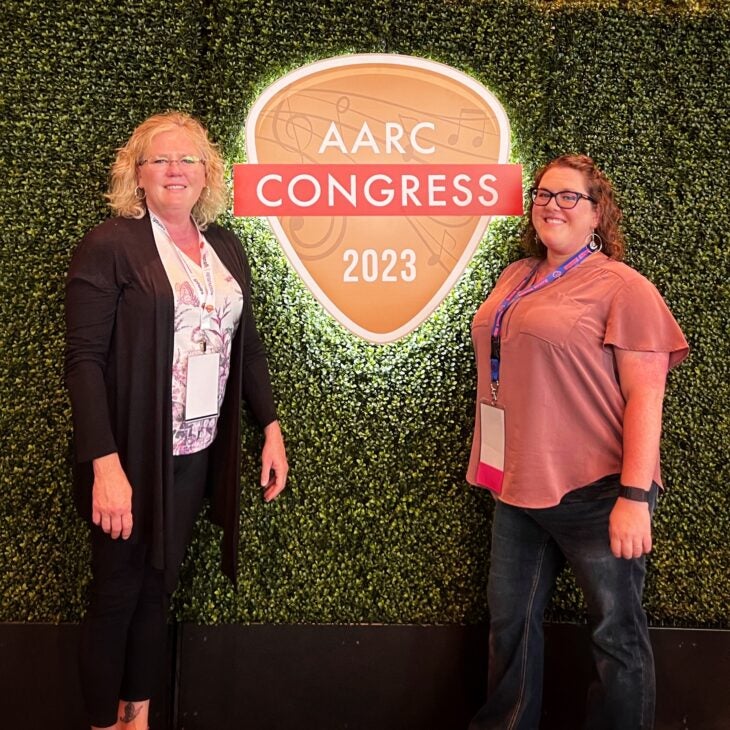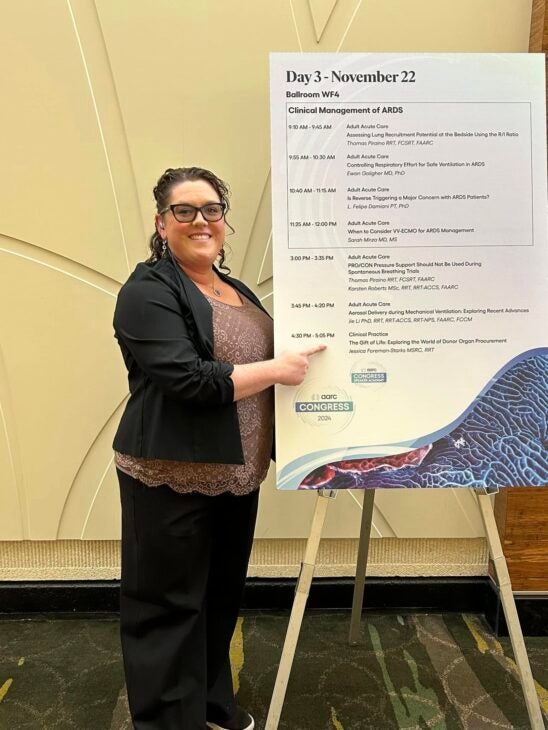
For Jessica Starks, health care wasn’t just a career choice — it was part of her DNA. But it wasn’t until she watched her mother go through Boise State’s Respiratory Care program that her own path began to take shape.
“I knew I wanted to work in health care, but I hadn’t considered respiratory care until I saw my mom in the program,” Starks reflected.
“Learning from her experiences opened my eyes to a whole new world,” she added.
She followed that spark straight into Boise State’s entry-to-practice respiratory care program, earning her associate degree in 2011 — a time when students could begin practicing clinically with an associate credential.
“That hands-on learning was invaluable,” she noted. “Respiratory care is such a tactile field. The program prepared me well for my board exams and gave me the confidence to step into clinical practice.”
While working full time, Starks enrolled in Boise State’s fully online Respiratory Care Degree Advancement Program to pursue her bachelor’s degree.
“The flexible format made it possible to juggle work and personal life without missing a beat,” she explained.
“I could keep advancing in my career while still managing everything else going on,” she said, calling it “a game-changer.”
When the university launched its online Master of Science in Respiratory Care, Starks didn’t hesitate — joining the very first cohort. Despite starting during the early months of the COVID-19 pandemic, she leaned into the program’s supportive community and asynchronous structure.
“It felt like we were all navigating something big together,” she said, recalling the experience.
“Even during such a chaotic time, the program gave me structure and momentum,” she said with gratitude.

By 2020, she had completed her master’s degree — walking across the stage in 2021 with a clear sense of purpose. She soon stepped into leadership roles in management and eventually returned to Boise State as faculty in the same Degree Advancement Program where she once studied.
“Teaching was always on my radar,” Starks admitted. “My experience at Boise State gave me the confidence and foundation to pursue it fully.”
Throughout her career, she’s held roles in neonatal intensive care, organ procurement and education — but the memories that stay with her most are the quiet celebrations.\
She still remembers the annual NICU barbecues where former patients returned with their families — happy, healthy and growing.
“You’d see babies you once cared for now walking, laughing — thriving,” she recalled warmly. “It was a reminder of why we do this work.”
Now, as an educator, Starks sees that same impact rippling outward through her students. She’s grateful for the mentors who helped shape her journey and hopes to provide that same support to those coming up behind her.
“Every degree I earned from Boise State opened a door,” she said proudly. “Now I get to help others unlock theirs.”